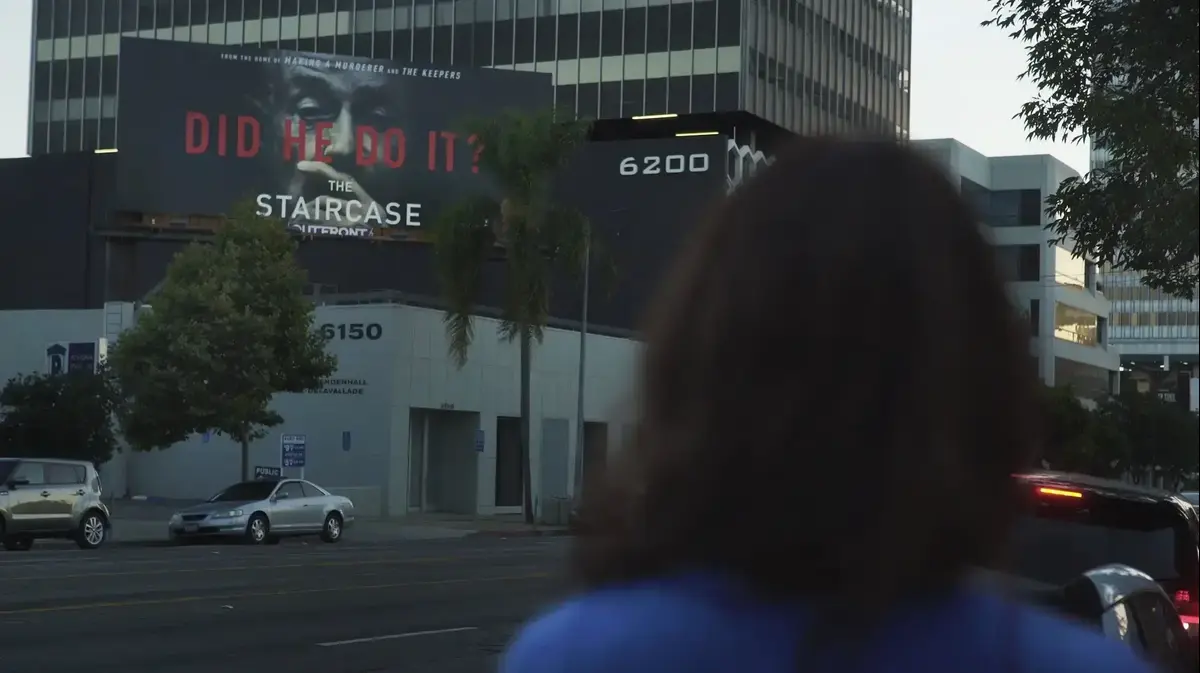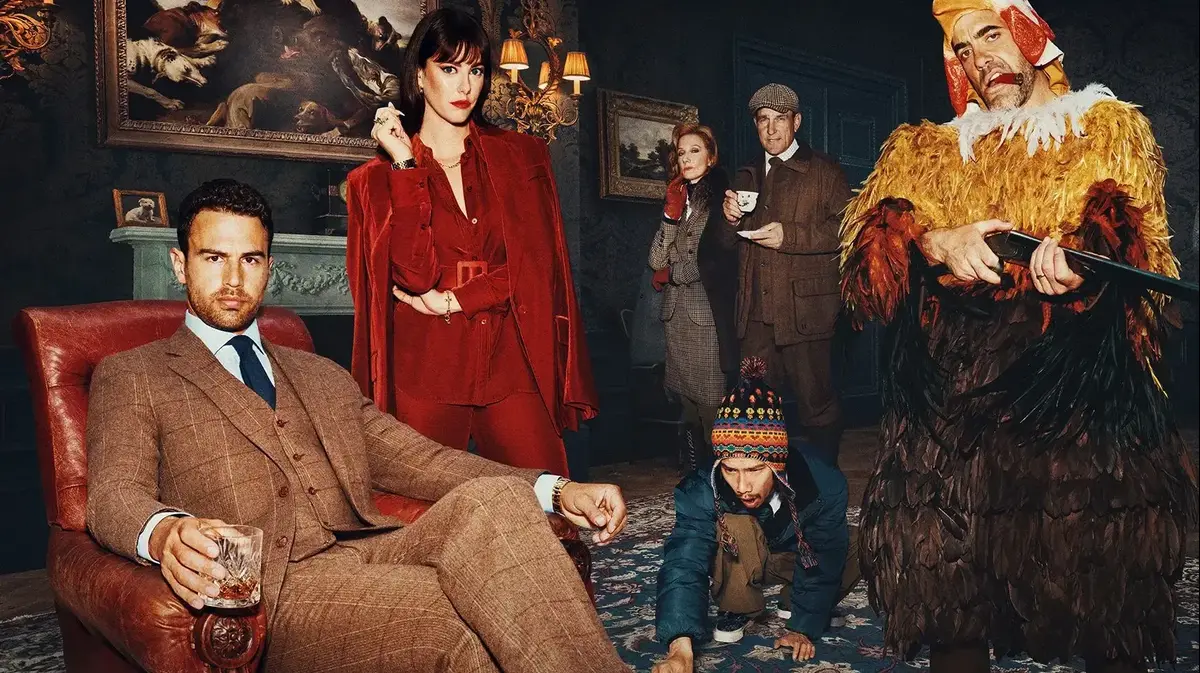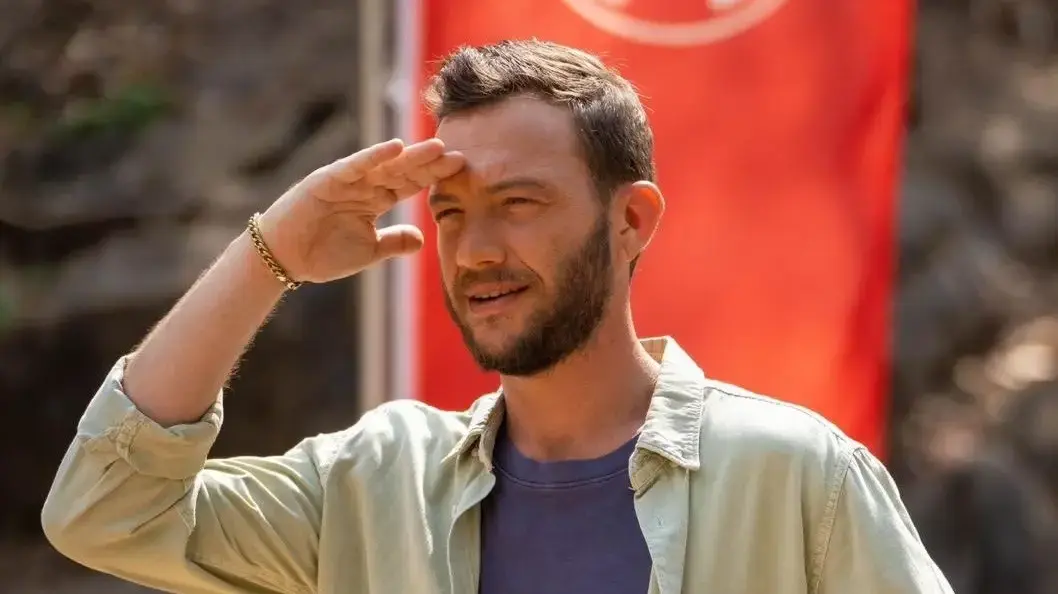Trailer for the docu-series "Characters" (Docaviv Festival)
Today (Tuesday), the Docaviv Festival will get underway. Like every year, it premieres the best domestic and international docu-films. Their creators will receive accolades and possibly awards, enjoy fame and advance their careers, but what about their subjects of documentation – will they be rewarded? And if they don't profit from the movie, will at least someone make sure it doesn't harm them?
These questions apply to Docaviv just as they apply to the hundreds of festivals that take place around the world. These are difficulties that have intensified in recent decades, in which the docu-world emerged from the ghetto of cinematheques and became an industry in every respect, in which corporations such as Netflix are also involved.
It's time for someone to discuss these ethical concerns in depth. Those who raised the gauntlet are Camilla Hall and Jennifer Teixeira, creators of "Subject," which will have its Israeli premiere at the Docaviv Film Festival, after touring some of the world's most prestigious festivals.
The film deals with the subjects of some of the most prominent documentaries of recent decades, including "The Staircase," "Catching the Friedmen" and "Hoop Dreams," and examines how their lives changed from the moment they agreed to participate in the docu-films starring them, and whether it is really possible to say that they "agreed" to do so.
The money is counted on the stairs. Margaret Ratliff (left) with her sister Martha in The Staircase (Photo: Netflix)
"In the years these films were made, the concept of 'consent' didn't even exist in the lexicon, not in the docu-world or elsewhere," Hall says in an interview with Walla! Culture on the occasion of the screening of the film at the festival. "In the past, life was just something that happened, without you having a say in it. Things have changed: we screened the film at many universities, and when I talk to students about the film, I understand that the concept of 'consent' occupies a central place among the younger generation."
Hall conducts this round of interviews without her co-director, but with one of the film's stars, Margaret Ratliffe, who she and her family were at the center of "The Staircase," one of the first highly successful true crime series. For the few who did not watch, we will recall that she dealt with the story of her parents - her father fought for his innocence after they blamed him for her mother's death.
The original series was so successful that they produced a sequel miniseries for Netflix, and Ratliff has a full belly on the streaming giant. "I remember fondly the celebration Netflix did around the show's premiere," she says. "I went as the family's representative, and they asked me to be quiet and not talk to the media. After the screening, there was a party at a fancy restaurant, and while I was standing in the corner, the filmmakers opened champagne and danced. I realized how much money they make from my family's trauma."
"Beyond my own case, 'Tiger King' is, in my opinion, an example of a lack of ethics. I don't know exactly what happened there, but based on my experience and watching the series, it's easy for me to assume that there was a lack of transparency between the production and the subjects of the documentation. They weren't presented with the project in a real light."
More in Walla!
"God exists—there is no doubt about that. Shema Yisrael, Lord our God, one Lord. Knock it in your head like a hammer."
See full article >
Ethics and aesthetics. From "Characters" (Photo: Adriel González)
"There are other negative examples, like 'Afflicted' on Netflix," Hall adds. "It's a classic case where people were presented with a project as a docuseries, but in the end the result was a reality show, something that happened a few more times. The participants thought they were filming a movie that raises difficult questions about illness and medication, and found themselves on a reality show that labeled them as lepers and crazy."
"On the other hand, there are also positive examples," Hall continues. "'Hoop Dreams' is considered one of the best docu-films of all time, and also a paragon of ethics when it comes to the relationship between creators and participants and the financial reward they received. On the other hand, it's a film about young black men directed by white men, and it's likely that something like this wouldn't have passed, or wouldn't have happened in the first place."
What is your perspective on the cocktails and parties that corporations and production companies throw into loaded docu-films?
Hall: I think the business got a little out of control. Parties, champagne and flashy campaigns aren't something that fits the character of many of the films made today, but it's because of the growth of the industry and the corporate nature it has received. One of my first films dealt with police brutality, and one of the participants said to me, 'If you take pictures at an event after the premiere, I don't want to be seen smiling. It's a painful and charged issue that hasn't been resolved yet, so there's really no reason for smiles.' Not long ago I was at a festival in Copenhagen. I met one of the participants in one of the films, whose name I won't name, and he told me that he felt very uncomfortable with the glamorous celebration surrounding the film."
Asking tough questions. Director Camilla Hall (Photo: Rita Baghdid)
In recent years, we have seen more and more prominent films dealing with animals, such as "Cow". What do you think of them ethically? After all, the animals cannot agree or agree to participate.
Hall: "Maybe that's the reason for the popularity of these films, because the filmmakers don't have to mess with the consent of the participants. I have an unpleasant feeling when I browse social media and see content starring animals. People dress their dogs in all sorts of ways for likes, and that makes me wonder. In contrast, many contemporary animal docu-films are films based on observation. You just put up a camera and look at the animal, you don't change its daily routine in any way."
Ratliff: "These films are important, 'Migratory Birds' and 'The Family of Emperors' made me look at birds and penguins differently. However, when you're filming a docuseries with participants who can't agree or disagree, it's important to take care of their well-being. This is true for animals and it is true for babies. My nephew was photographed for 'The Staircase' as a baby. Today he has a page on IMDB without having any control over it. Is that fair to him?"
How does a cow do? From "Cow" (Photo: MK2)
We talk about internal codes of ethics, but what does the dry government law say about the issue?
Ratliffe: "If you're not Johnny Depp or someone like that, it's hard to find a lawyer willing to represent you in these matters. Most lawyers will say something like, 'If you kept appearing for interviews, and you didn't say 'no' explicitly, that's called consent.' I have yet to meet a lawyer who will say that there is a law that protects the subjects of the documentation."
Hall: "The trickiest situation is what I call 'this isn't the movie I thought.' People agree to participate openly, but the film that came out is not at all what they agreed to."
I feel that this has happened more than once recently with musical docu-films.
Hall: "There used to be a lot of problems around them. Today, celebs only agree to be filmed if they have a say about each stage of the film, and then it turns from a docu to a public service announcement. Their involvement in these films is problematic."
Ratliff: Camilla, if we start limiting the control of the subjects of the documentation, it's a slippery slope.
Have you seen Israeli films that dealt with ethical questions in an interesting way?
Ratliff: "Most of the films that are available to us deal with Israel, but they were made by non-Israeli filmmakers, and I think that's a very problematic filter. It's a shame that's the case."
Hall: "I can only say that there is a vibrant docu-community in Israel. The festivals and broadcasters in Israel are always the first to submit a proposal for every new film of mine. I wish every country was like Israel."
"Characters" will be screened at the Docaviv Festival on Monday, May 15 at 5:15 and Thursday, May 00 at 18:5. To order tickets see the official site.
- culture
- cinema
- Film News
Tags
- Docaviv Festival
- Netflix















